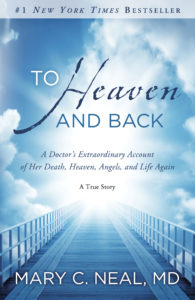What Is Fiction Legalism?
In my years of Christian fellowship and internet activity, I’ve learned much about the sin of legalism. First, some Christians are more legalistic than they’d ever know. Second, said Christians have no idea what real legalism is in the first place.
This is particularly prevalent in the issue of fiction, especially speculative storytelling. Yet it touches all kinds of Biblical doctrine and action, so some of that will also be discussed here.
Fiction. Clearly this topic recurs at SpecFaith. How much “speculation” or “grit” or curses or sexual content are too much? If a story includes questionable content, is its author not a legalist? If a story avoids this content, is its author vulnerable to challenges about freedom?
Nonfiction. Recently I jumped into a social-network group whose chief function is to mock and slam and of course swear vociferously at supposed “fundamentalists.” Despite this helpful approach to engage lovingly with other created human beings formed in the image of God — even if they are those nasty fundies — I thought it would be interesting to see for myself whether my gentle challenges to one post would be welcomed. Nope. Naturally I was blasted just as much as if I’d come in there and said “Haw haw, UR all goin’ to Hell.” I even set a trap related to the “abstain from all appearance of evil” phrase from 1 Thess. 5:22 (KJV). It wasn’t that clever a trap, but folks fell for it. How did they know I was a legalist? He looks like one! But that’s a false interpretation of the verse. Burn him anyway!
Irony much?
I’m afraid said irony continues when we’re trying to identify legalism in stories or authors.
If we don’t care how the only non-legalist ever, Jesus Christ, defines the sin of legalism, then anytime we try to sic the accusation on others it may come right back around to bite us in the backsides. How does this occur? To explore more, let’s have a Where’s the Legalist? quiz.
It works like this: After each anecdote, consider which of the listed responses is legalistic.
Where’s the Legalist?1
Figure 1 (fiction):
A new novel by a professing Christian author includes a dystopian future in which sex-tourism and -slavery has overrun the world. A team of elite evangelical commandos, highly trained (and perhaps surgically altered) to resist the temptations of this sordid world, infiltrates the headquarters of the sex-slave operation. The story shows clearly that sexual perversion and slavery is reprehensible, yet with semi-detailed descriptions (seeming-positive descriptions quickly become negative for impact), and ends reflecting Gospel light.
Response A: “I cannot read a story like this, and no other Christian should. Being holy and Christlike always means we cannot be exposed to even some descriptions of sin like this.”
Response B: “I might not read a story like this, but other Christians might be able to.”
Response C: “Serious Christians must read this story if it’s well-written! We need to have more of these kinds of realistic stories around, which don’t shy from the world’s evils.”
Figure 2 (nonfiction):
 A Christian pastor writes a web article in which he decries the constant encroachment of the homosexual agenda in society and government activism. Though the pastor’s entire repertoire makes it clear he also finds fault with Christians who do act as if homosexual desires are unforgiveable sins, in this article he critiques only the homosexual lobby.
A Christian pastor writes a web article in which he decries the constant encroachment of the homosexual agenda in society and government activism. Though the pastor’s entire repertoire makes it clear he also finds fault with Christians who do act as if homosexual desires are unforgiveable sins, in this article he critiques only the homosexual lobby.
Response A: “In context with other reminders, this is a helpful and Biblical contribution.”
Response B: “This pastor is legalistic. ‘Christians’ have spent years fighting gay advocates with religious law. We should only share the love of Christ, not condemnation and politics.”
Response C: “Good for this pastor. Down with all homosexuals. We must protect children.”
Figure 3 (fiction):
A new movie by a professing Christian director explores a world of demonic possession and exorcism. The story is visually impressive and capably acted and edited, though some critics charge that the film doesn’t extol the Biblically (and otherwise) documented power of the Name of Christ over Satan’s forces. In response the scriptwriter and director say this: “We’re not about theology. Our goal is only to tell a good story and make people notice.”
Response A: “It is dangerous to get involved with demons like this. I question their faith.”
Response B: “I agree. Preaching like this in a story would only be legalistic.”
Response C: “Is it ‘freedom’ to fear Jesus’s Name in a story in which He is needed most?”
Figure 4 (nonfiction):
A popular female pop star conducts a lascivious routine on national television, sparking outrage from civilian Christians in their various media and pastors from their pulpits.
Response A: “She is going to hell. Hide your children. Society is getting even worse.”
Response B: “Don’t judge her. Judging is evidence of legalism and doesn’t show that God loves her just as much as He loves us. We should only be praying for her and showing love.”
Response C: “We must judge ourselves first, then the world. But this was evidence of sin.”
Figure 5 (fiction/nonfiction):
A professing-Christian publisher publishes a book in which the author claims to have gone to Heaven. During her near-death experience, she says she saw children who hadn’t yet been born, and gives credence to Mormonism and the idea of the pre-existence of the soul. Defending the book to another author, the publisher says “You know our hearts” and “[It] is not a book of theology.” 2
Response A: “It’s not legalistic to question a Christian book.”
Response B: “No, this author shouldn’t question the publisher’s or the author’s heart and motives. This attitude betrays his legalistic heart and motives to disparage a work of God.”
Response C: “These books about Heaven are dangerous. ‘No eye has seen,’ and so on.”
- Parts of these are based in reality, yet most is invented. ↩
- Yes, this example is based completely on this back-and-forth between author Randy Alcorn and the publisher of To Heaven and Back by Mary Neal. ↩































Ooh, I like stuff that makes me think! I’ve written my answers to the quiz below, but first, I’d like to ask: is there a difference between “legalism” (boxing people into “guidelines” the Bible never gives) and saying honestly, “I’m not going to read that, because I, personally, don’t agree with x aspect.”? Case in point: one reader/review apparently didn’t have a problem with x aspect in a fantasy book, but I did, so I skipped that volume and moved to the next book in the series (yeah, I’m weird). Should this other reader/reviewer not have read the book? I can’t say; that’s between her and God. Would you call that “legalistic”?
Okay, the quiz:
B and C.
A and B.
A and B.
Definitely B and possibly C, although I too am skeptical of “I went to Heaven” books.
Thanks for your thought-provoking discussions! I look forward to the rest of the comments–and my test score. 🙂
~Literaturelady
P.S. Sorry you got flamed on that other website.
Most of these have two legalist responses. One on the side of limiting, and one on the side of “freedom.”
It’s easy not to pay attention to someone’s “entire repertoire” when a hot-button issue comes up. That’s why it’s usually better to limit most arguments up front, though I know that it’s not always legalistic to present only one fascent of an argument.
Actually, I think in some of the cases, all three responses could be legalistic. I think almost any argument could be legalistic. To believe in your own argument more than you believe in the truth is legalism, and maybe idolatry. In most arguments, both opponents are probably guilty of some degree of legalism.
It’s probably impossible to argue very much at all without being a little legalistic. None of us can see beyond our own limitations, at least not naturally, not most of the time.
True. Any response with a heart attitude of legalism will naturally be legalistic.
I did presume, though, that in the intentionally “right” responses the speaker was being sincere. Again, the only legalism-free individual was, so far, Christ Himself.
Yet if you believe your argument is based on truth, and humbly say so with (as far as depends on us) only reliance on the Self-revealing God Who did lovingly give us some of His truth in the Scripture, then one can say that without being prideful or legalistic. No, it’s not possible not to sin all the time, not in this life, before our resurrection. But it is possible not to sin some of the time, thank God.
Sorry to triple-post, but I just thought of a question. Is it possible to be absolutely right — to be clearly on the side of objective Christian truth — and yet to present that truth in a legalistic way?
I think the answer is probably yes. Real truth is objective, but we cannot posses the truth. We can know it, find it, tell it, but we can’t encompass it or limit it or define it. (We can know the definition of a truth, but we must no think that we defined it, or that it is true because we say it is.) To have a legalistic attitude about a truth is to try to steal that truth from God.
I think it’s possible to make a truly accurate argument or criticism in a very legalistic manner.
Absolutely. A lot of what the pharisees said was true. Even Jesus said so:
Being on a website where the majority disagree with you most of the time? No idea how that feels. At all. Whatsoever.
But I guess it’s good for us.
Hey, something keeps you coming back, sister, and yes it’s all good. I for one am just pragmatic enough to prefer iron-sharpening and attention-getting discussions over “good post” and “I agree 100 percent, you guys rock” reactions.
(Per the FB page, about which I didn’t mean to sound so whiny, I had to block the discussion intentionally and head out, just for my own sanity and productivity.)
Sometimes Christian spec faith writers/readers can be legalistic – everyone should read speculative fiction (I read this argument in an otherwise good christian non fiction book); no-one should read Amish fiction or romance novels etc…
Yes. This. I have noticed this tendency. More often I notice it in myself.
Legalism is a result of pride, and that is a sin-infection we struggle with all our lives.
Lord, I thank you that I am not legalistic like other men.
🙂
I guess recognising it in ourselves is a good step to avoiding it.